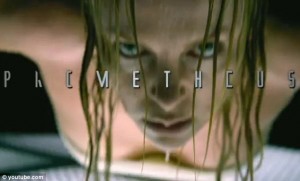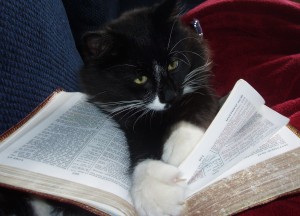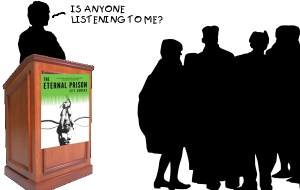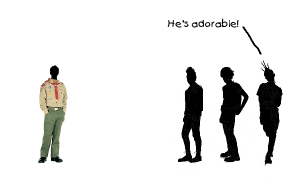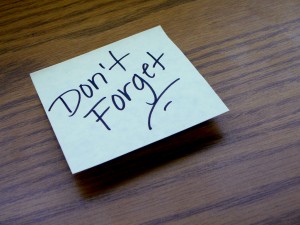
My desk is literally covered with hundreds of these.
As a published author, I get a lot of emails and messages from writers who want some advice on how to get published or how to improve their writing [1], and, frankly, it’s always challenging to find new and entertaining ways to tell them “I have no goddamn clue.” Which I mean very seriously. For the “getting published” part I can’t tell you anything beyond I wrote a lot and submitted work fearlessly, somehow found an incredibly agent and took advantage of the opportunities that came to me. The rest of it is all blurry and confusing [2].
As for the writing: I honestly have little insight. While some folks attack writing as a craft, honing skills, for me it’s always been a simple expression of creativity. I don’t study writing (unless reading a lot counts, which it of course does, in which case I study writing every day) and I never workshopped or participated in a writer’s group or a creative writing program. I always just wrote and wrote and wrote and my submission process is a sloppy one, often violating submission guidelines I never read, hardly ever taking the advice to read sample issues or paying attention when an editor says they’re not looking for what I’m writing.
The worst part is how alien much of my writing comes to seem after time. Things I wrote ten years ago I can’t imagine writing now, and often don’t even remember writing at all. I have novels in folders (written back when I was still typing everything out on a manual typewriter) that I have zero memory of. There’s one titled The Hobo Obituaries. It’s 102 typewritten pages, which is about 40,000 words. I have no clue what it’s about. Nothing.
My memory is terrible, and there was a time when I worried about that, was frustrated by it. Much of my life has faded from memory. I might recall on some basic level that I did something that particular day, but the details e usually gone. I have no real memory of it, I just know it happened. That used to scare me a little, and frustrate people around me who remember things in vivid detail and assume my lack of memory meant it hadn’t mattered to me.
Today, I think of my awful memory as a good thing. [3]
My terrible memory allows me to reinvent things easily. I’m not a slave to actual detail; I can take the fuzzy dreamscape that is my memory and shape it and work it and add details that might not have actually been there in the first place. I can write my memories. Details are overrated, anyway. [4]
This is both a superpower and Kryptonite. Just like my beloved liquor! On the one hand, I am free to recreate anything without being tied to details, which is a way of being creatively free. On the other hand, those details are sometimes useful, and not having them at hand can result in some wonky Wikipedia lookups – which are doubly humiliating, as I’m researching stuff I actually lived. Or think I lived. If I can’t remember the details, did it happen?
Ultimately, I don’t think it matters. I’ve always rejected the idea that experience is important in the sense of collecting them – you travel and adventure and see things, but if you don’t do anything to share them, they die with you and what did it matter? Conversely, if my own experiences are by now hopelessly muddled [5], so what? The precise details don’t matter anyway. All that matters is what I write.
——
[1] “a lot” = one recently; most of my emails are meant for another Jeff Somers who might be some sort of secret agent.
[2] Just ask my agent, who is still cleaning up some of my awful mistakes signed before she took me on.
[3] For context, though, I also think of my lack of grooming as a good thing.
[4] Details like making a living and wearing pants, apparently.
[5] My whole life is basically this Simpsons clip:





